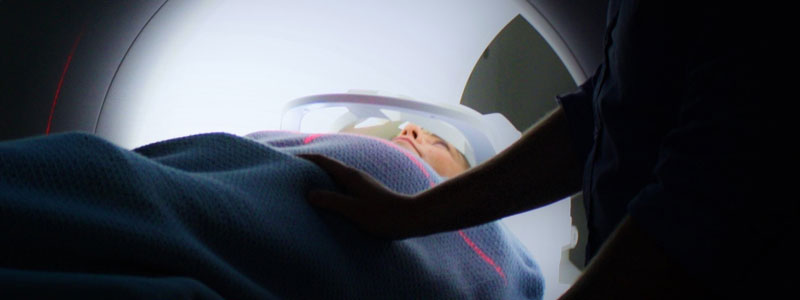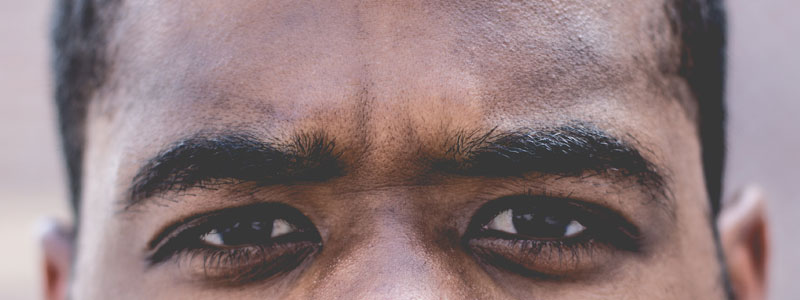What Is a Traumatic Brain Injury (TBI)?
Many people focus on the first word of the term traumatic brain injury (TBI): traumatic. However, like most injuries, traumatic brain injuries occur on a spectrum. Technically speaking, a traumatic brain injury is any neurological dysfunction resulting from outside force to the head. A TBI can be anything from a mild concussion to permanent brain […]

January 12, 2018
Many people focus on the first word of the term traumatic brain injury (TBI): traumatic. However, like most injuries, traumatic brain injuries occur on a spectrum.
Technically speaking, a traumatic brain injury is any neurological dysfunction resulting from outside force to the head. A TBI can be anything from a mild concussion to permanent brain damage to death.
There’s a clear link between car accidents and traumatic brain injuries. In 2013, traffic accidents caused more than 383,000 traumatic brain injuries in the United States. That year, 14 percent of all traumatic brain injuries were related to traffic accidents.
Symptoms of a Traumatic Brain Injury

Some traumatic brain injuries are more obvious than others. If there are visible signs of injury — bleeding or bruising, for example — it’s easy to identify that a person has suffered head trauma. Fainting or being unconscious may also indicate an injury.
However, not all TBIs are so obvious. A person may walk away from an accident scene and develop symptoms later on.
Keep an eye out for the following signs of a traumatic brain injury after an Indiana car accident:
- Headaches
- Dizziness
- Sleeping problems, ranging from insomnia to perpetual sleepiness
- Memory problems and confusion
- Slurred speech
- Nausea or vomiting
- Blurred or double vision
- Weakness/numbness in limbs or difficulty with coordination
- Abnormal behavior
It’s important to seek medical treatment after a car accident if you’ve been injured in any way, but especially if you believe you may have a traumatic brain injury. If you remember hitting your head in any way during the accident, you should seek medical attention, even if you feel okay. Keep in mind that you may not remember hitting your head even if you did. If you wake up at the accident scene or struggle with remembering what happened, it’s a good idea to go to the doctor and make sure you didn’t suffer a traumatic brain injury.
Is It Safe to Sleep After a Traumatic Brain Injury?

If you’ve suffered a concussion in an Indiana car accident, you may be worried to fall asleep. A common misconception is that a person with a concussion will slip into a coma if they’re allowed to fall asleep.
(Speak with a medical professional if you or a loved one has suffered a TBI and you’re unsure whether or not they should be allowed to sleep. Professional medical advice should trump any and all of the following information.)
According to the BBC, the fear of letting people sleep after a concussion relates to a rare phenomenon called the “lucid interval.” The lucid interval occurs after a person has woken up from being unconscious. The person appears perfectly normal during the lucid interval, but their brain is actually bleeding. If the person loses consciousness again, their situation worsens drastically.
As mentioned before, the lucid interval is incredibly rare. If a person has hit their head and seems fine, simply look out for the symptoms listed previously.
In fact, many medical professionals stress that rest is needed for your brain to heal after a traumatic brain injury. As long as the injured person isn’t experiencing symptoms like vomiting, confusion, severe pain, difficulty walking, or impaired vision, sleep and rest are necessary. With certain TBIs, doctors will forbid patients from reading, using tablets or computers, or watching television in order to give the brain rest.
The best thing you can do if you or a loved one has suffered an injury to the head is to seek medical attention. A medical professional can answer all of your questions and look for symptoms that would indicate a more serious traumatic brain injury.
How to Physically and Financially Recover After a Traumatic Brain Injury

Physically, treatment for a traumatic brain injury varies. With a mild concussion, you may just need some time to rest at home. With a severe injury, you may need surgery, medication, and long-term care in a hospital or medical facility.
If your injury is moderate or severe, you may need to undergo therapy. Physical therapy can help you regain strength in certain muscles or relearn certain movements. Indianapolis charitable organizations like NeuroHope make it their mission to provide affordable rehabilitation for people who have suffered traumatic brain injuries.
Speech therapy may be necessary to help you regain the ability to speak. You may need mental and emotional therapy in order to process the emotional effects of a severe injury, such as PTSD, depression, or anxiety.
Beyond the physical, you’ll also want to recover financially. There’s no reason you should have to pay out of pocket to cover your medical bills and expenses if you didn’t cause the accident. Even if you’re partially at fault, you still may be able to recover a portion of your expenses from the at-fault driver’s insurance company before filing with your own insurance to cover the rest.
For physical recovery, it’s best to listen to your doctors. For financial recovery, an Indiana car accident attorney can help.
Help from an Indiana Car Accident Lawyer
If you or a loved one has been injured in a car accident, Hensley Legal Group can help. Call us today or contact us online for a free consultation.
Available 24/7
Free Case Review
You won’t pay any fees until we win your case.
It’s easy - you can: